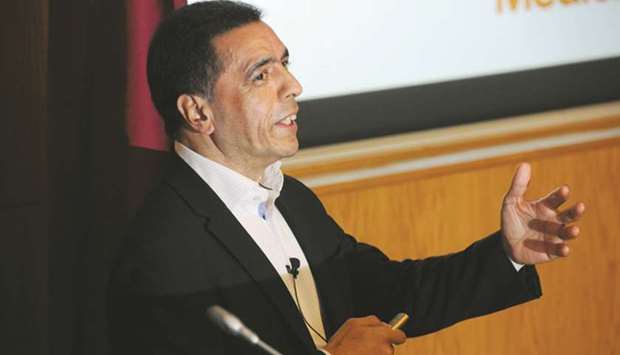Type 1 diabetes is the most common form of the condition in children, according to an expert who discussed childhood diabetes and the best ways to diagnose and manage the disease at the latest instalment of Weill Cornell Medicine – Qatar’s (WCM-Q) Grand Rounds lecture series.
The talk, entitled ‘Diabetes in Children: Causes, Classification and Management’ was delivered by Prof Khalid Hussain, chief of paediatric endocrinology at Sidra Medicine.
Prof Hussain outlined the different types of diabetes in children, explained how particular diagnoses can alter the treatment and management of the disease, and spoke about the research that is furthering the understanding of childhood diabetes.
He said diabetes manifests itself through either a defect in the body’s production of insulin leading to a higher concentration of glucose in the blood, or a defect in the action of insulin.
In children, Prof Hussain said, type 1 diabetes, where the pancreas fails to produce enough insulin, is the most common, whereas in adults, type 2 diabetes is more prevalent and manifests itself as insulin resistance. Type 2 diabetes is generally related to lifestyle and affects around 17% of people in Qatar whereas type 1 is a complex autoimmune disease. Along with these most common variations of the condition, Prof Hussain also outlined other types of the condition, including neonatal, mitochondrial, syndromic and MODY (Maturity-Onset Diabetes of the Young).
He described the most effective management of the various types of diabetes and how accurate diagnosis of the specific variation affects the medication and control of the disease.
Dr Stephen Atkin, professor of medicine at WCM-Q, said, “Prof Hussain is an acknowledged expert on childhood diabetes and a renowned clinician and researcher. His talk has been truly valuable for healthcare professionals and his work in the laboratory will hopefully continue to bring further enlightenment to the topic.”

Prof Khalid Hussain
